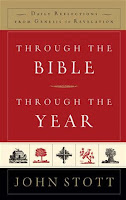Original Sin - The Other "Original Experience"
Genesis three is one of two "hinge" passages for the Biblical story. Both hinges are a drama of man and woman around a tree. The first protays the first Adam and Eve around the tree of the knowledge of good and evil and the fateful choice that is made there. The second portrays the second Adam and Eve around the tree of Calvary, and the fateful choice that is made there. All of human history turns on these two episodes, what has done, not done and what was undone there.
Genesis describes how the original unity and harmony established in creation is destroyed by the first man and woman's choice to reach outside of God's will for them, to cease trusting in the goodness and reliability of God towards them. At the end of chapter two we are told the man and woman were both naked and "not ashamed." By chapter three, verse seven, the same couple is sewing fig leaves together to cover themselves. What transpires to change "naked and unashamed" into "sewing fig leaves together and made themselves loinclothes?" The drama of human history (not just the Bible - which is the meaning of human history) turns on this question.
Our first parents succumbed to a lie. John Stott's analysis of the first temptation, leading to the first sin, is one of the best short anaylsis I have read (pp30-32). In asking the insinuating leading question, "did God really say, 'you must not eat from any tree in the garden?'", Stott explain that the devil in the form of the serpent opened a line of faulty reasoning that ultimately denied the truthfulness of God (actually God did not say what the devil suggests), denied the goodness of God (overlooking the broad permission the LORD already gave them - "you may eat from every tree of the garden") and denied the otherness of God ("you will be like God..."). They were already God-like, being the only image-bearers in creation.
At the heart of original sin is denial: doubt leading to denying the goodness, truthfulness and otherness of God. This is what separated our first parents from God, from one another and, eventually, from all of creation. Genesis 4-11 will document this progressive social deterioration.
If doubt and denial lead us out of relation with God then it is safe to suppose that trust in the goodness, truthfulness and otherness of God will lead us back in. And this is what scripture teaches: we are made right with God through faith. The way out is also the way back in. The rest of the scriptures describe the process (grace on God's side and faith and repentance on our side) of bringing people estranged from God and one another into reconciliation with God and all of their original experience.
As suggested at the beginning, we will be confronted again with a couple, a choice and the same God of goodness and truth. Learning how to read Genesis three teaches us how to read the passion of Jesus. And vice versa.
What does Genesis three teach us about combatting temptation - and the temptor?
What might you do the next time you are tempted to think God is something other than entirely good and truthful to you?

Tory, I really liked both your explanation and John Stott's concerning original sin. I looked at this in relation to Jesus' temptation in the desert and found remarkable similarities to the denial of God's truthfulness, goodness and otherness. But what was very encouraging to me as one who is often tempted was Jesus' use of Scripture to defeat the devil's temptations. This goes back to what you said that "The way out is also the way back in." Jesus demonstrates for us how to combat temptations and through his death allows us to come back into the relationship broken in the garden.
ReplyDeleteI also liked quote by Abraham Heschel: "To sense the presence of God in the Bible, one must learn to be present to God in the Bible. Presence is not a concept but a situation." Again, if we are present to God, then we will know in the core of our being that God is truthful, good and Other--beyond ourselves and worthy of all worship and honor.
I am enjoying this study and really appreciate your commentary. Thanks for sharing all this with us. Praying for you and your family.